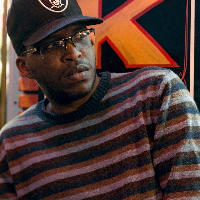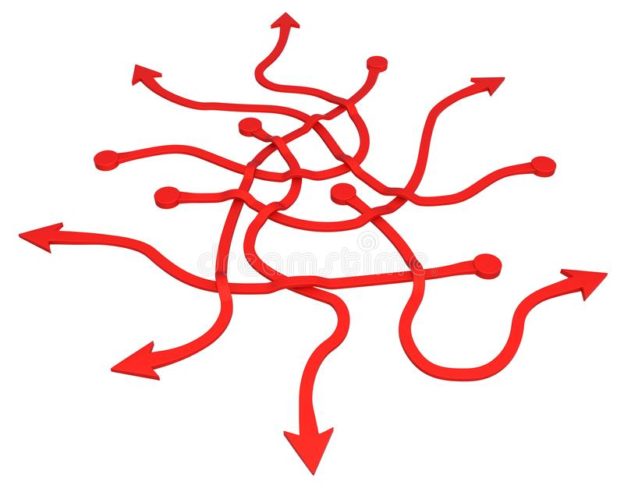I didn’t become a genuine socialist until I’d started reading some of Karl Marx’s books in the last half of 2018, but my upbringing made me sympathetic to the idea of socialism from a young age. For the first two months of my life my parents, my twin brother, and I were living in my grandma’s garage. I haven’t had the guts to ask why yet, but I understand there was a big fight that ended in us leaving. From then on we were chronically homeless, living either in families’ garages when possible or in shelters or our car when not. I vividly remember my parents sleeping in the front seats of the car with two of my brothers sleeping in the backseats and me and my twin sleeping on the floor. I’d seen plenty of TV shows and movies where the characters had their own houses. I guess it was just childhood innocence, but it never occurred to me that my situation wasn’t normal until either preschool or kindergarten: I knew everybody didn’t have it like me, but I just assumed most people did since that’s what I was used to. After I started making friends I realized that all of them were living in houses, apartments, or projects. Whenever I dared ask my parents to buy something for me they replied: ‘We can’t afford it.’ I made the connection that the reason we hadn’t had our own place yet was that my parents couldn’t afford one, even though most of the kids I was meeting had parents who could. That was one of the first instances when I can vaguely remember thinking: ‘Why? Why can’t my parents afford a home, if apparently most parents can? Why should anyone have to pay for a necessity?’
I don’t vividly recall hearing the term ‘socialist’ or ‘communist’ until 4th or 5th grade, when we started learning a little about the Cold War and some of the major figures in black history. I quickly idolized Huey Newton, because he was also from Oakland, as well as Malcolm X. Reading that Huey advocated for communism while also hearing communism practically demonized for its association with Russia confused me, but Huey’s takes on capitalism as unfair strongly resonated with me even then. He was probably the first person to give me a glimpse into why inequality existed.
When I was in ninth grade I was surfing Youtube and came across the 9/11 part of the documentary Zeitgeist that had come out the summer before. I decided to watch the rest. It completely blew my mind. I already identified as agnostic after I stopped going to church in seventh grade, but the first part of it hooked me because it gave me a more solid reason to be critical of religion rather than just not having proof. The last part of the documentary had a profound effect on me too because it was the first time I’d ever seen money be seriously criticized. The sequels also fascinated me because watching them introduced me to the idea of a world without money. I wondered before if that might solve many of the world’s problems, but that was the first time I’d seen the idea promoted as a practical solution, so I became completely enamored by the concept of a ‘resource-based economy.’
Fast forward to when I was in twelfth grade and in English class everybody was required to write a senior paper on whatever topic they wanted. I chose to write mine on social stratification. Doing research for that paper taught me about the lower degree of social mobility and higher degree of social problems America has when compared to other developed countries. I’d seen the Michael Moore documentary Sicko by then, so I knew that a lot of developed countries had healthcare that was free or dirt cheap, but I don’t think I realized until doing the research that a lot of them had free or dirt cheap college too. Realizing how backwards our system was led me to question why more people weren’t pressuring our government to do the same thing.
I graduated from Modoc High School in June 2011 and I moved back to Las Vegas the month after for vocational school, since there weren’t any colleges in Alturas, California. A couple of months later the Occupy Movement exploded, and the Las Vegas chapter had its first march in October. I think I went to two of them, but the whole time I felt like an idiot because I knew marching wasn’t getting our point across to anybody. A few times at meetings and while hanging out at the campsite I made the point that we might get better results if we gave speeches to persuade people, but all the older members dismissed me as young and naïve. One even told me: ‘Go start your own organization then.’ That experience led me to resent marching and leadership. A funny side note: I went through a sort of a ‘conspiracy theorist’ phase after watching Zeitgeist, but I was growing out of it by the time I graduated because I realized that there wasn’t any tangible proof to a lot of the stuff I’d read or watched. Some of the people who were apart of Occupy, though? Complete wackjobs. Don’t get me wrong, most of the people there had their heads on straight, but there were a handful of seasoned adults who still thought there was some ominous group of Zionists out there who ran everything from the shadows and ate babies. Apparently they had never heard of the Taxil Hoax.
After Occupy Las Vegas disbanded in early 2012, I spent a couple of years bouncing around and making music while I tried to get my life in order. My attention wasn’t anywhere near politics until Bernie Sanders started his presidential campaign in 2016. My homie Kyle showed me a video of him explaining his policies and I could barely believe what I was hearing. He was talking about so many progressive measures that I thought for a second that it was a joke. I asked myself: ‘Why would an old, probably rich white guy advocate for all this? Why is he calling himself a socialist? Doesn’t he know what happened in Russia?’ But after I’d done some digging and realized he was deadass serious I was sold. He wasn’t advocating for the ‘resource-based economy’ I had fallen in love with, but what he was proposing would obviously be a major improvement compared to how things were. I wasn’t as big of a Bernie supporter as Kyle, but I was moderately involved in supporting him. I posted about him on social media, talked to people about him when I was at events, and even voted for him in the primaries. As you can imagine, I was disappointed when he didn’t win the democratic nomination. Over the next couple of years I’d still advocate for him to people here and there, but whenever people brought up the fact that the Nazis, Russia, and Venezuela also called themselves socialist I got stuck. I’d try to say it wasn’t the same thing, but I didn’t really know if that was true because I’d never read anything from any socialists. I just really liked Bernie’s ideas and I couldn’t understand how they could possibly be associated with the horrors that the Nazis caused.
The last straw for me came in June 2018, when a local Vegas rapper named Teej threw a release show for his new album Spotlight at 11th Street Records. My homegirl Jerrika introduced me to a girl named Beth and somehow our conversation led to the subject of socialism. She brought up Venezuela and I had it, I was done. I tried to use the same ‘they’re not the same thing’ argument, but when she pressed me to explain the difference all I could do was speculate. I was doing research about immigration myths at this time, but I knew my defense of socialism didn’t hold up, so when I was thinking it over afterward I decided that I had to put the immigration research on hold in order to educate myself on socialist theory so that either that situation wouldn’t happen again or I would find out for myself that the entire idea of socialism was stupid.
I started by skimming through the Wikipedia page on socialism to decide where to start. Karl Marx immediately stuck out to me because in my experience he was always touted as the main influence on socialists, so I went to his page and skimmed through it, too. Capital, Volume 1 stuck out to me in his bibliography because I’d heard it mentioned before and the Wikipedia page about it confirmed that it was a pretty important book, so I decided to start by reading that. Big mistake! For the love of god don’t do that! I got like three pages into Chapter 1 and gave up: the language was just too sophisticated for me.
I tried not to think about it for a couple of months. I did my first tour as a musician that July and after I got back I just wanted to relax for a while. My conscience kept eating at me though, and eventually I decided I had no choice but to try again and start somewhere else. I skimmed through Karl Marx’s bibliography on Wikipedia again and noticed that The Communist Manifesto seemed important and was also short, so I decided to read that first. I read the PDF version that’s on marxists.org and a few things stuck out to me right away. A big one was that he mentioned that communism would abolish all private property and make it common property and that private property and personal property were different, because private property was used to generate profit and personal property wasn’t, so personal property wouldn’t be abolished in communist society. This obviously disproved the right-wing talking point that ‘Communists want to take your toothbrush!’ Other ideas that impressed me were that communism would abolish selling and buying, abolish classes, abolish the state, and abolish wages. In the principles of communism at the back of the PDF, it also said that money would be abolished, and that the revolution couldn’t possibly happen in one country, it would have to be worldwide. All these criteria instantly sounded alarms in my head. Russia had all these things and Bernie wasn’t talking about abolishing any of them — many of his proposals explicitly required that they all stay intact. After reading that I did some more skimming through Marx’s bibliography and decided to read Critique of the Gotha Program next. That reinforced some of the earlier criteria and gave more insight into how a socialist society would be established and some of the differences between its lower and higher phases.
Having recognized the differences between what Marx, Lenin, and Bernie were talking about, I naturally wondered why they all referred to their ideology as socialism. To get some insight on this, I skimmed through the Wikipedia page for socialism. Reading that led me to the page on Marxism, which led me to the page on orthodox Marxism, which has a section on impossibilism that led me to the Socialist Party of Great Britain’s website. There I read through each section on the ‘About Us’ dropdown menu and was amazed. I’d never heard anyone refer to the USSR as state capitalist before, and that instantly shocked me because it made perfect sense. They also defined the DSA, and Bernie Sanders by association, as reformist and that was another game changer for me. I spent a few days reading through some more articles on the website and the most recent issue of The Socialist Standard (October 2018) and was even more amazed to find out that they’d had the same message and goals since 1904. The fact that they’d stuck by the same principles while so many other people and groups faltered sold me. I knew their message was watertight, enough people just hadn’t considered their perspective yet. I applied for membership in the American counterpart to the SPGB, the WSPUS, a few days later and got to work reading more of Marx’s work to strengthen my knowledge of socialism from there.
Originally published at http://www.wspus.org/2020/03/how-i-became-a-socialist/.


